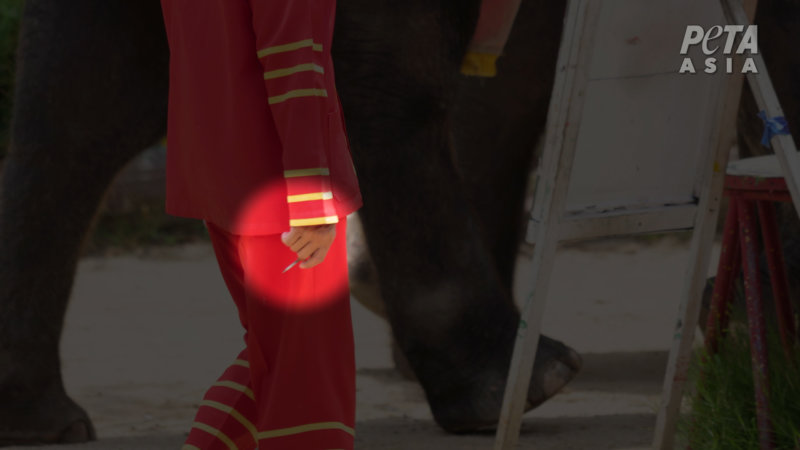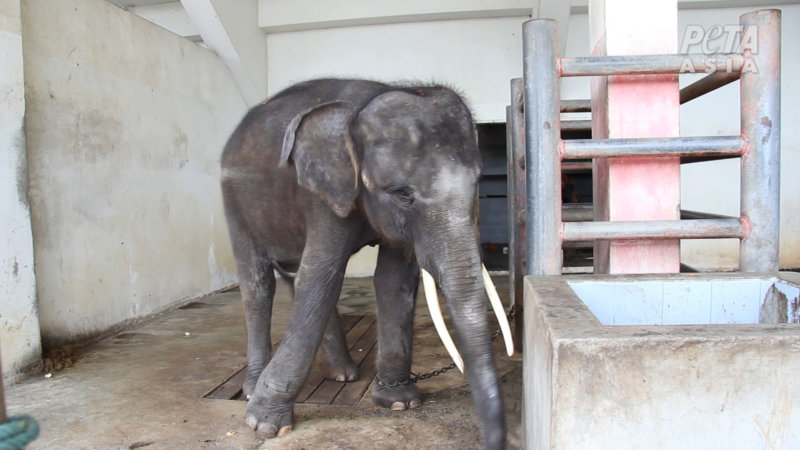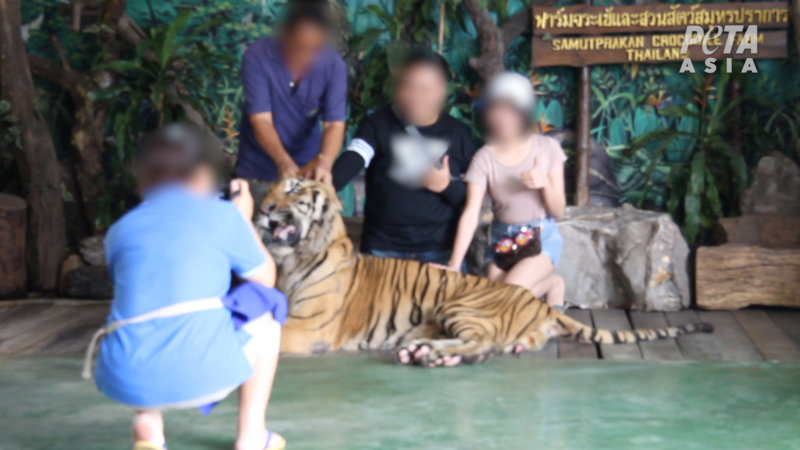Baby Elephant Chained and Abused for Tourists
A breaking PETA Asia video exposé of Thailand’s Samutprakan Crocodile Farm and Zoo shows the abuse endured by a suffering baby elephant made famous by a recent National Geographic feature. As the video footage below shows, elephants at the facility are chained for most of their lives and stabbed in order to force them to perform confusing and uncomfortable tricks for tourists. Other animals are also abused: they’re prodded and harassed by workers so that they’ll perform and tourists can take photos with them.
Abused and Stabbed for Cheap Tricks
PETA Asia eyewitnesses documented that workers stabbed elephants with sharp metal implements to coerce them into dancing, bowling, and performing other uncomfortable and confusing tricks. By paying to see these acts, tourists supported the abuse.
Elephants were found with bleeding wounds on their sensitive temples and ears. Other animals also had scars on these areas, indicating that they’d been subjected to similar abuse.
Chained to a Life of Suffering
Eyewitnesses found that the elephants’ legs were tethered with short metal chains and that the animals were forced to stand on hard flooring, such as concrete, which can cause them to develop foot and joint problems.
The elephants weren’t offered any enrichment opportunities and were only unchained when being forced to perform tricks or give rides to tourists. They constantly swayed from side to side, which is a sign of mental distress.
Severe Abuse and Depression
Other animals were also treated cruelly so that they’d entertain tourists. Crocodiles were beaten with bamboo sticks by workers during shows, and a tiger was harassed so that tourists could pose with the animal for photos.
Eyewitnesses found that other animals, including a chimpanzee and an orangutan, appeared to be suffering from severe frustration and depression. They were being held captive for photo ops with tourists, which the zoo profited from.
Elephants Deserve Better
Elephants are highly social animals who form strong, lasting bonds with their family members. They work together to solve problems and rely on the wisdom, judgment, and experience of their eldest relatives. In their natural homes, they spend their days socializing, swimming, exploring, and playing.
In nature, they don’t carry people on their backs or perform uncomfortable and confusing tricks. The deprivation, stress, and lack of opportunities for exercise that elephants endure in captivity can cause them to develop abnormal types of behaviour – such as rocking and swaying – never seen in the wild. In addition to dying short of their natural life expectancy, captive elephants have high rates of painful and chronic health problems, such as cracked nails, abscesses, obesity, and arthritis.
You Can Help Stop Cruelty to Elephants
PETA Asia has submitted its findings to Thai police. The best thing that you can do to help elephants and other animals exploited for tourism is to make compassionate travel decisions by never patronizing businesses or sham “sanctuaries” that exploit wild animals or allow direct contact between humans and animals.








